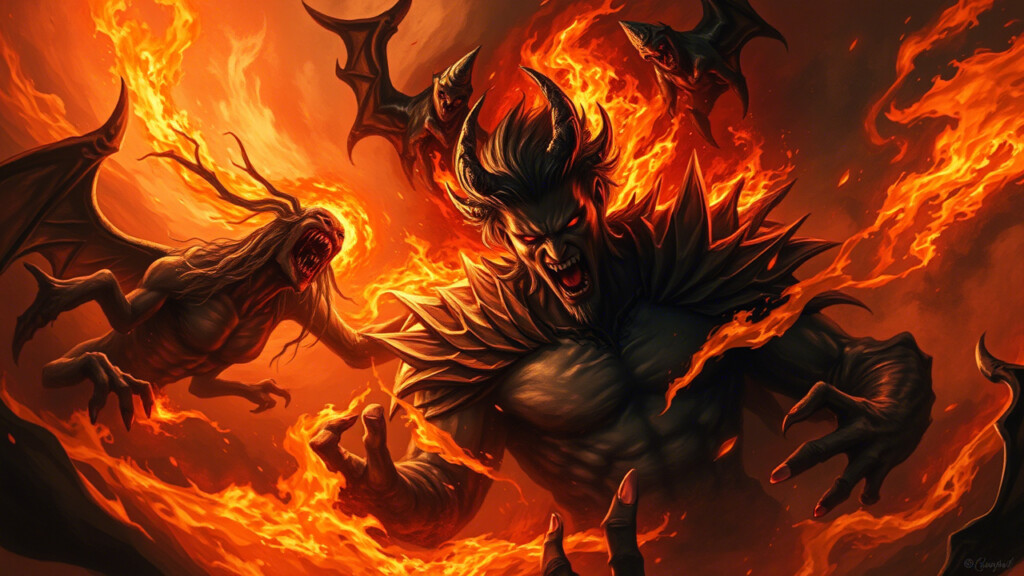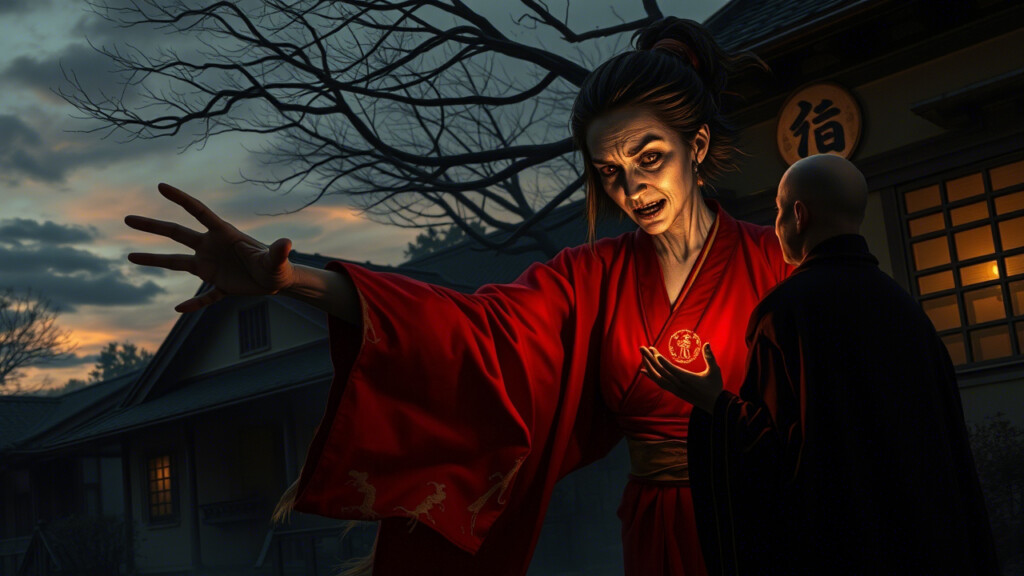The dead may turn to dust, but resentment does not. It smolders in the shadows, clinging to this world as if refusing to leave. In Japan, they call it Urami (恨み)—a grudge so deep it can manifest into a vengeful spirit or even a demon.

Urami is not just a fleeting rage. If hatred could grow, feed on itself, and evolve, then Urami would be the tree that sprouts from that bitterness—its roots buried deep in hell, its branches stretching toward the living. That is why Urami never dies—it simply waits for the right moment to ignite.
When Hatred Refuses to Fade, Urami Becomes a Demon
Japan has a unique type of ghost known as Onryō (怨霊)—vengeful spirits. Unlike Western ghosts, which wander aimlessly, or Chinese spirits, which rely on their descendants for offerings, an Onryō has only one purpose: revenge.
A classic example is Oiwa from Yotsuya Kaidan, a famous Japanese Kabuki play by Tsuruya Nanboku IV (1825). Betrayed by her husband and poisoned with a disfiguring drug, she died in agony and humiliation. But her Urami—her intense resentment—refused to let her soul dissolve. Oiwa became an Onryō, appearing in mirrors with her twisted face and disheveled hair, whispering in the ears of her treacherous husband until he lost his sanity, eventually stabbing himself in the throat in sheer terror.
That is the power of Urami. It is not just a ghost—it is a living curse, something that cannot be banished, reasoned with, or escaped. It can only consume.
Urami and Its Variants Across Cultures
Japan has Urami, but the idea of undying resentment is not exclusive to the Land of the Rising Sun. In China, people believe that unresolved grievances can destroy entire bloodlines. A murderer may take a life, but he cannot kill the hatred left behind, and so his descendants suffer one calamity after another, as if an invisible force is exacting justice.
In Western folklore, extreme grudges manifest as Revenants—the dead who return for vengeance. In an old English legend, William of York, a knight betrayed and murdered by his friend, rose from his grave, his rusted sword dripping with spectral blood, and hunted his killer to the depths of the forest before vanishing.
Each culture perceives resentment differently:
- Japan: Urami is personal, turning individuals into vengeful ghosts.
- China & Vietnam: Resentment lingers across generations, dragging entire families into doom.
- The West: Intense hatred can transform into an independent supernatural force, affecting anyone in its path.
But the common thread? Hatred never truly disappears—it only changes form.
How to Suppress and Break the Chains of Cursed Resentment?
It is said that when a soul dies filled with hatred, it does not vanish—it becomes something else. A shadow. A demon. A lingering curse. And once it takes form, it does not stop. Its resentment is fire, and the world is its fuel.
But no matter how powerful the demon, there is always a force that can subdue it.

In Japanese traditions, purification rituals with salt or Buddhist monks chanting prayers are used to sever the grip of Urami, as per folklore. During the Obon festival, a centuries-old custom, lanterns are released onto rivers to guide vengeful spirits toward peace. In China, Kṣitigarbha Bodhisattva (Địa Tạng Vương Bồ Tát) is believed to save lost souls from hell, breaking cycles of grudge-filled reincarnation.
In the West, exorcisms involving crosses and holy water are used to purge spirits, as seen in the infamous 1976 case of Anneliese Michel in Germany—though unsuccessful, it reflects the belief that divine power can counteract malevolent forces.
When watching horror films or reading ghost stories, a fascinating theme emerges: the cultural meaning behind resentment and vengeance. Imagine a child growing up in neglect and cruelty. At first, they only want to protect themselves. But over time, they become the source of fear—believing that only the strong remain untouched by pain.
So how do we stop this? Modern psychology suggests healing through mindfulness or forgiveness therapy—approaches backed by studies in trauma research—confronting the wounds rather than letting them fester into a new form of Urami.
And perhaps the best way to dissolve hatred… is to never let it form in the first place?
Urami is not just the grudge of the dead—it is the darkness that creeps into the living. Hatred does not make us stronger—it only shackles us to the past.
Urami Is Not Fate—It Is a Choice
Demons are not born; they are forged from unhealed wounds and unresolved suffering.
Urami is the same. It is a process, not an inevitability. When we embrace it, we become the demon.
When we let go, it loses its power.
So, in the end… who do you choose to become?
